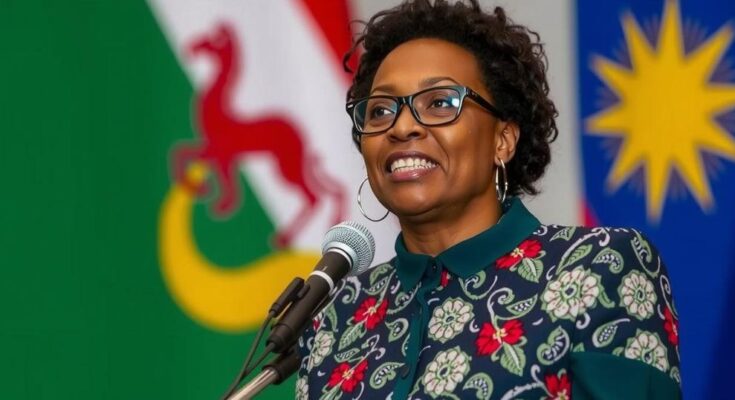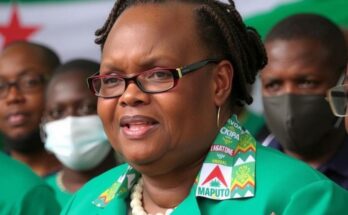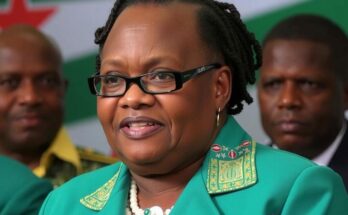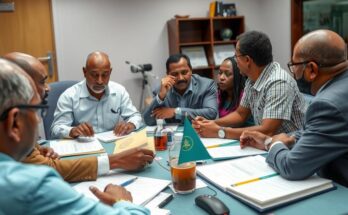In the recent presidential elections in Namibia, Vice President Netumbo Nandi-Ndaitwah of SWAPO led early results despite significant technical issues and opposition claims of illegality regarding an extended voting period. The opposition plans to contest the results, raising concerns over the election’s legitimacy in a nation previously known for stable democratic processes.
On November 27, 2024, Namibia’s Vice President, Netumbo Nandi-Ndaitwah, of the ruling South West Africa People’s Organization (SWAPO), emerged as a leading candidate in the presidential elections. However, the election faced significant challenges, including technical difficulties and a shortage of ballot papers, which necessitated extending voting over a three-day period. The opposition parties have raised concerns over the legality of this extension, claiming it undermines the democratic process in a nation known for its historically stable elections.
As initial results indicated Nandi-Ndaitwah receiving approximately 56% of the votes counted so far, she stands poised to potentially become Namibia’s first female president. The Independent Patriots for Change, led by Panduleni Itula, trailed with around 27% of the votes in the preliminary tally. Given the reported electoral complications, there are fears that these issues may overshadow the outcome, prompting opposition parties to indicate plans for a legal challenge to the results.
The election is significant not only due to Nandi-Ndaitwah’s potential historic win but also against the backdrop of rising discontent among Namibians due to economic challenges, including high unemployment and corruption scandals that have plagued SWAPO’s administration. The Electoral Commission of Namibia has indicated that a rerun of the election will not be conducted, despite opposition calls for such an action. In a broader regional context, several other ruling parties in southern Africa are experiencing similar sentiments of dissatisfaction among voters, highlighting a growing trend of discontent with long-standing leadership.
Namibia has been governed by SWAPO since its independence from apartheid South Africa in 1990 and has maintained a relatively stable democratic environment. However, recent years have seen a rise in economic frustrations, particularly among the youth. The current elections are marked by significant procedural issues and opposition grievances, which pose a challenge to the legitimacy of the electoral process. SWAPO’s historical standing as Namibia’s liberator is now juxtaposed against the demands for reform and accountability, especially amid allegations of corruption. Neighboring countries are similarly witnessing shifts in political power and electoral integrity, reflecting a broader regional phenomenon of electoral volatility.
The recent presidential elections in Namibia, led by Vice President Netumbo Nandi-Ndaitwah, represent a pivotal moment in the nation’s political landscape. As early results indicate Nandi-Ndaitwah’s lead amid substantial electoral issues, the opposition’s planned legal actions may challenge the validity of the outcome. This situation unfolds within a broader context of economic discontent and calls for political reform in southern Africa, which may shape the continent’s democratic trajectory moving forward.
Original Source: apnews.com




